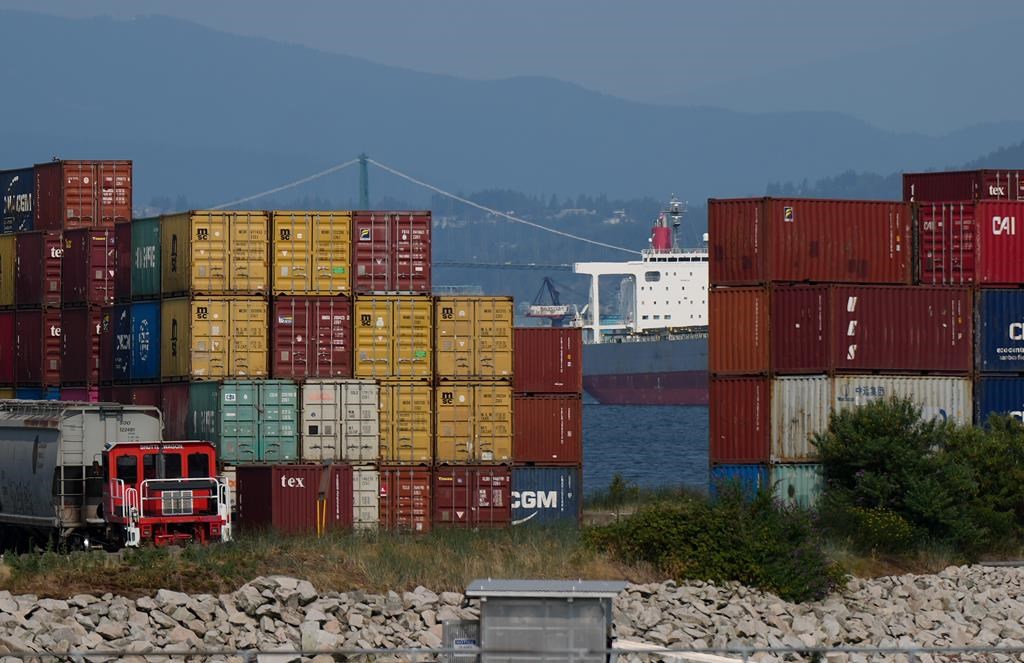A tentative agreement was reached in the B.C. port strike on Thursday, but Saskatchewan associations are still monitoring concerns that could surface later down the line.

About 7,400 West Coast workers have been on strike since July 1, halting shipments in and out of about 30 ports in B.C., including Canada’s largest, the Port of Vancouver.
The International Longshore and Warehouse Union Canada announced the tentative deal on Thursday at 10:20 a.m. They did not provide any details about the agreement.
The Greater Vancouver Board of Trade estimates more than $9.3 billion in trade has been disrupted since the strike began.
“The 11 days of work stoppage have taken a very significant economic toll on our country,” said CEO of Saskatchewan Chamber of Commerce Prabha Ramaswamy. “This is significant for our province because 44 per cent of our trade goes through that port.
“We are going to see prices go up because of the disruption of the supply chain,” Ramaswamy said. “We are landlocked. We are heavily trade-reliant.”
It is hard to say right now, she said, what recovery is going to look like and how long it will take.
The Vancouver trade board said 63,000 shipping containers are waiting on the water to be unloaded.

Brad Sigurdson, vice president of Saskatchewan’s Mining Association said there is still more work to do to to see the agreement ratified.

Get breaking National news
“Even though the ports are getting up to normal operations soon, there will be a significant backlog due to the extended strike,” Sigurdson said.
He said about 95 per cent of the Saskatchewan Mining Association’s products travel through ports in B.C.
Nutrien Ltd. curtailed production at its Cory potash mine on Tuesday after it lost export capacity. The fertilizer producer had said that if the work stoppage were to continue, it could affect the production of other potash mines around the province.
“We are trying to get our fertilizer that the world needs to help feed the planet out to our markets internationally and we need to do that in order to meet their growing season,” Sigurdson said. “If we don’t, what that will result in, is countries that may not see the yields that they need to see.”
He said he expects things to be back to normal capacity in the country around October.
“We need to demonstrate to the world that we are a reliable trading partner.”

Saskatchewan’s construction association said they have only seen minor delays as a result of the strike so far.
“Leaving the remnants of the B.C. flood a few years ago that did severely impact supply chain, the thought was that if this was extended for a certain period of time that that could be a reoccurring problem. It’s such an important component of the Canadian supply chain,” said director of procurement Ryan Fredrickson with the Construction Association of Saskatchewan.
Fredrickson said contractors might be feeling the pressure of the strike at some point, but he said it’s too early to tell.
“When it’s a manufacturer who is providing the supplier with certain equipment, technology, materials, usually those manufacturers have a little bit of a contingency built in just to be risk-averse.”
If the strike were to have continued longer, Fredrickson said it could cause major issues for the industry’s supply chain.
“There are a few specific materials that come through that port so it is definitely key and integral to the supply chain but Saskatchewan has been resilient and we have some good functioning supply chains,” Fredrickson said.
– with files from The Canadian Press and Global News’ Amy Judd
- What China’s ‘alignment’ with Carney on Greenland says of ‘new world order’
- N.S. missing kids: Stepfather denies abuse allegations, says he puts ‘full trust’ in RCMP
- Will more Chinese EVs be a ‘self-inflicted wound’ for Canada’s auto sector?
- Canada talks trade with Qatar as Carney touches down in Doha








Comments